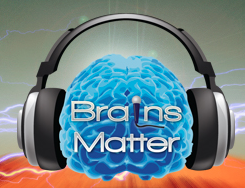Brains Matter is a podcast about science from Australia. It was one of the shows on my ill-fated Podango™ Science channel, and it is now one of the charter members of SCIENCEPODCASTERS.ORG. Unfortunately, I don't have a chance to listen to it on a regular basis, but I want to recommend the most recent episode, which is a discussion of robotics in history and in fiction. The guest is Adam Parker, who is studying for a PhD in Robotics in Australia. He has a surprising knowledge of the history of the field and brings that perspective to the conversation . I think that that is one of the things that makes the interview interesting. This is not a technical conversation, but one that everyone can enjoy. As I said on Digg™, if you liked Blade Runner, you will enjoy this interview.
















